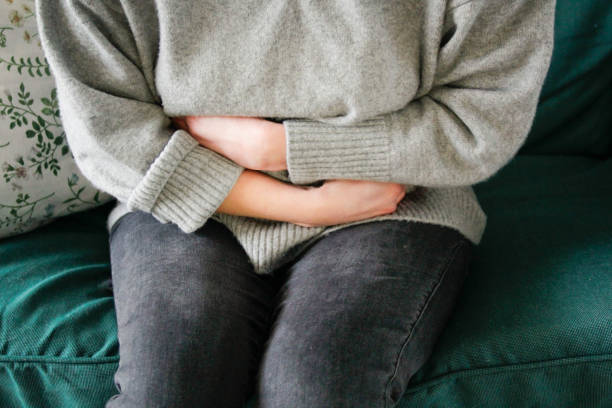Labelled a “modern epidemic,” endometriosis emerges as a leading cause of chronic pelvic pain and a significant contributor to infertility, affecting as many as half of the women seeking fertility treatment. This condition, spotlighted during March’s Endometriosis Month as per the World Health Organisation, impacts an estimated 10% of women of reproductive age worldwide.
In South Africa, the presence of endometriosis might be greater than reported, with high diagnostic expenses, a shortage of awareness, and an evolving healthcare system contributing to its underdiagnosis.
One of the most profound effects of endometriosis is on fertility, a symptom that brings considerable emotional and mental strain. This condition involves the growth of uterine-lining cells outside the uterus, leading to symptoms such as painful menstruation, ongoing pelvic discomfort, and pain during sexual activity. For many, the repercussions on reproductive health are especially severe.
The complexity of endometriosis means it can lead to infertility by causing adhesions or scar tissue that disrupts the function of ovaries and fallopian tubes, preventing fertilization. It can also hinder ovulation or egg production when it develops inside an ovary. Conditions like adenomyosis, where endometriosis invades the uterine wall, and hostile pelvic environments that diminish egg quality, further impede the journey towards conception.
However, with the right knowledge and treatment strategies, the burden of endometriosis on individuals and their family-building aspirations can be mitigated.
Dr Abri de Bruin, Senior Medical Director at Genesis Reproductive Center and leader of Mediclinic Kloof’s endometriosis unit, which boasts the most modern theatre in the southern hemisphere, stresses the importance of awareness campaigns. These campaigns illuminate the prevalence of endometriosis and the crucial aspect of reproductive health in managing this “21st century disease.”
“Endometriosis is definitely more prevalent today than it was 20 years ago and is becoming increasingly prevalent in younger women. Experts attribute this rise to factors such as increasing stress levels as well as the kinds of hormones contained in the foods we eat.
While the root cause of endometriosis remains elusive, the medical field has advanced significantly in identifying the manifestation of this condition across different individuals and treating it with minimal invasiveness.
Highlighting the urgency for enhanced awareness, Dr. Kamlanathan Subrayen of Lenmed Ethekwini Hospital and Heart Centre emphasizes the necessity of early detection, particularly in younger patients, to avoid diagnostic delays.
“No one is too young to have endometriosis,”
he says, underscoring the importance of recognizing and addressing the condition from the onset of menstruation. He also debunks several myths around endometriosis, noting that it can commence with one’s first period, that hysterectomy doesn’t serve as a cure, and the vital role of medical management in reducing the need for multiple surgeries.
As this discussion unfolds, it prompts us to ponder: What steps can be taken to further elevate the discourse around endometriosis and enhance the support system for those affected?
In dissecting the dialogue on endometriosis, questions arise about the broader implications for healthcare policy, access to accurate information, and the empowerment of women in managing their reproductive health. How might increased awareness and understanding influence the approach to diagnosis and treatment, ultimately shaping the future of women’s health in a positive light?
What is Endometriosis?
Three Symptoms of Endometriosis
- Painful Periods (Dysmenorrhea): Many individuals experience severe cramping during periods, which can start before the menstrual cycle and extend several days into it. Pain may also occur in the lower back and abdomen.
- Pain During Intercourse: Pain during or after sexual intercourse is another common symptom of endometriosis, often described as a deep pain.
- Chronic Pelvic Pain: This can be a constant or intermittent pelvic pain that worsens during the menstrual cycle. It’s not solely linked to menstrual periods and can significantly affect daily activities.
Signs of Endometritis
Endometritis, an inflammation of the uterus lining, is different from endometriosis. Its signs include:
- Unusual vaginal discharge with an abnormal odor or color
- Fever and chills indicating an infection
- Pelvic pain and discomfort
- Abnormal bleeding or spotting outside of the normal menstrual cycle
- Difficulty with or pain during urination
Living with Endometriosis
Living with endometriosis can be challenging. The condition can lead to significant pain and discomfort, affecting daily activities, work, relationships, and mental health. The chronic nature of the pain, along with fertility issues, can lead to emotional distress and feelings of isolation.
Effects of Endometriosis on Life
Endometriosis can affect various aspects of life, including:
- Fertility: One of the most significant impacts is on fertility, with some individuals experiencing difficulty conceiving.
- Quality of Life: Chronic pain can affect physical activities, social interactions, and overall well-being.
- Mental Health: The ongoing struggle with pain and fertility issues can lead to anxiety, depression, and stress.
Endometriosis Treatments
Treatment for endometriosis may include:
- Pain Management: Over-the-counter pain relievers or prescribed medications to manage pain.
- Hormone Therapy: Hormonal treatments can help slow endometrial tissue growth and prevent new growths.
- Surgical Options: In severe cases, surgery may be recommended to remove as much endometriosis as possible while preserving the uterus and ovaries. For those not seeking pregnancy, hysterectomy may be considered.
Endometriosis Therapy
Therapeutic approaches to managing endometriosis include:
- Physical Therapy: To help manage pain and improve pelvic floor dysfunction.
- Counseling or Psychological Support: To address the emotional and mental health challenges associated with living with a chronic condition.
- Complementary Therapies: Such as acupuncture, which some find helpful for pain management.
Managing endometriosis is about finding the right combination of treatments and therapies to improve quality of life and manage symptoms effectively.

















